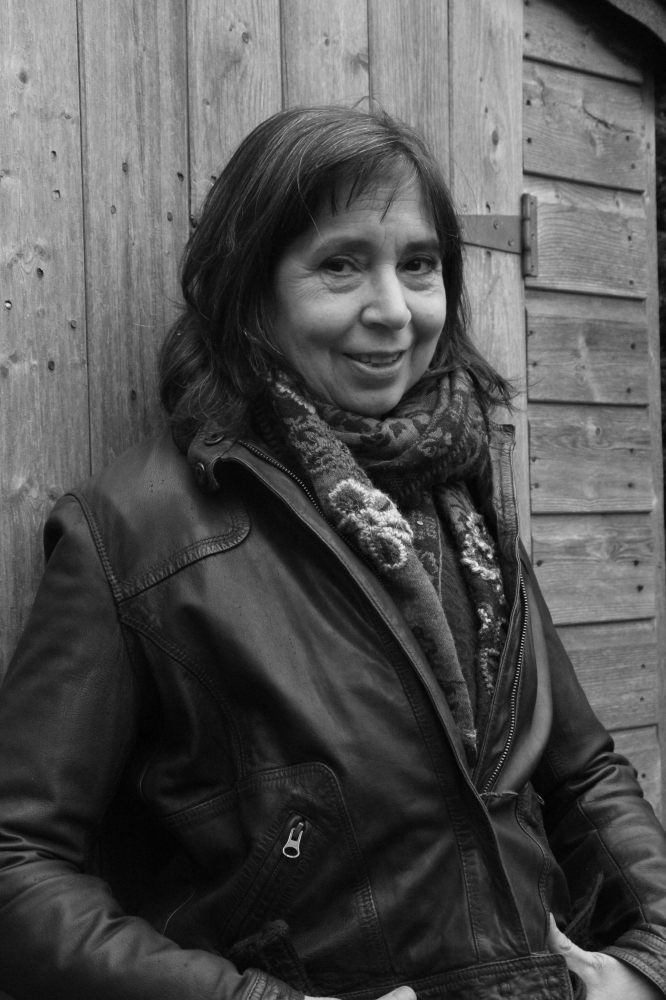I see life in terms of stories, which is probably why I became a writer. So the things I’d like you to know about me are stories of my life, rather than my likes and dislikes which are not that interesting.

Laura Gascoigne
I wouldn’t be here if an ammunition ship hadn’t blown up in Bari harbour in WWII. My Italian mother had blagged a job as a British Army interpreter on the strength of the English she’d picked up from American pop songs, and after the explosion she lost her way in the damaged Army HQ. She was wandering down a corridor when she met my father and asked him the way to her office. He took her to his office instead and said: “Look what I found in the corridor!” They were married a year later, he in British Army uniform, she in a beautiful ruched dress she had made out of curtain netting.
I was born in Cairo, where my father opened an English language bookshop. Before the war he had never had a proper job; he trained as a lawyer but was really a bit of a playboy, making money from cards in London clubs. His father had been the famous cricketer, Plum Warner, which is probably where he acquired his taste for the high life. But he was always a gentleman. One evening, in a West End club, he decked Evelyn Waugh for insulting a hostess. (Not so gentlemanly, perhaps, as Waugh was smaller than him.)
Anyway, Cairo really was the high life. Before the Egyptian Army revolt of 1952, when my father’s bookshop got burned down, there were banquets where a waiter stood behind each chair. My mother was always immaculately dressed in Paris fashions she had copied in fabrics bought from the local shops. On one grand occasion she went to the ladies and found her dress matched the curtains; she got out quickly. I was just two when we left Egypt so I never learned Arabic, but my first word wasn’t ‘Dada’, it was ‘Abdul’.
After Cairo we moved to Belgium, where my father ran the Brussels branch of WH Smith. I don’t remember the books but I do remember the café, the only place in Brussels that served a full English. At the convent school I attended with my sister, we drank beer with school dinners because the water was so foul. The first language I remember writing in was French, though after my mother’s death I found exercise books with lists of Flemish vocabulary. I still speak bad French with a decent accent, but the Flemish vanished.
When we moved to Cambridge, where my father ran a university bookshop, I was “the little French girl” at school. I had to relearn everything from scratch and didn’t catch up until the 11 Plus which, to my surprise, I passed. The number on my paper was 23, still my lucky number.
I had a great time as a leggy teenager in Cambridge, with all those male undergraduates and only three women’s colleges. One November rag day I posed in a statue niche on a college wall wearing a floral mini dress and shocking pink tights while a bloke shook a bucket down below. I took up acting, shared a playbill with Prince Charles and went on a college drama tour of South Africa, where Harriet Walter played my mother in All’s Well That Ends Well.
Before that, I’d gone to France to improve my French and stayed near Montpellier with the sculptor John Skeaping and his future wife Maggie. My French didn’t improve but I learned a lot about life – and cooking – and developed my love of art and artists. While I was there, my mother sent me a clipping from the Cambridge Daily News that she said had made her blood run cold.
It was a front page story about the Cambridge Rapist who had just been caught after a major manhunt. At the time of the rapes I remember being relieved that we lived in the country outside Cambridge, as the rapist preyed on girls in the city. What I learned from the paper was that he was our odd-job man. Mr Cook, as we knew him, had decorated my bedroom, and a very good job he had made of it too. Years later I sat next to Mick Jagger at a dinner and for some reason the subject came up. I told him Mr Cook had never laid a finger on me and he replied that it didn’t say much for my sex appeal, after which I spilt soup in his lap.
Nothing so newsworthy has happened to me since. I went to Oxford University, studied Classics, started a patchwork quilt business in Lots Road, Chelsea, went back to France to help John Skeaping write his autobiography, got married to a musician, Brian Gascoigne, had two boys, wrote an unpublished novel and several unpublished stories/poems, got a job on an art magazine, went freelance as an arts journalist and here I am.
Will The Horse’s Arse be the end of the story? I hope it’ll be the start of something new.

The Horse’s Arse by Laura Gascoigne (published by Clink Street Publishing 4th April 2017 RRP £8.99 paperback, RRP £3.99 ebook) is available to purchase from online retailers including amazon.co.uk and to order from all good bookstores.

